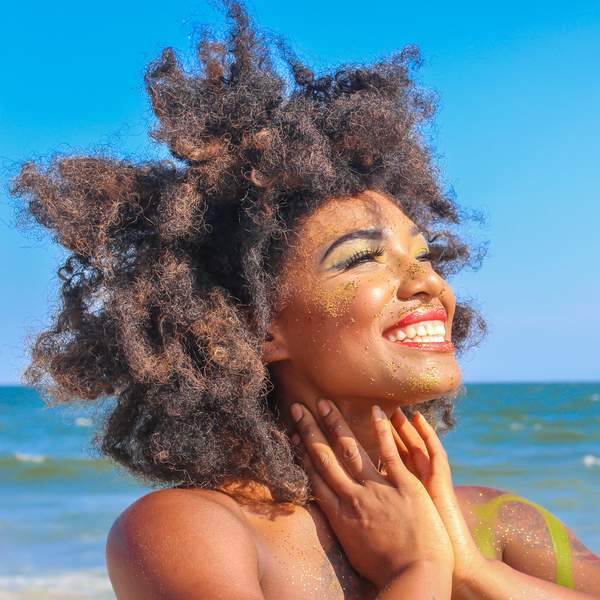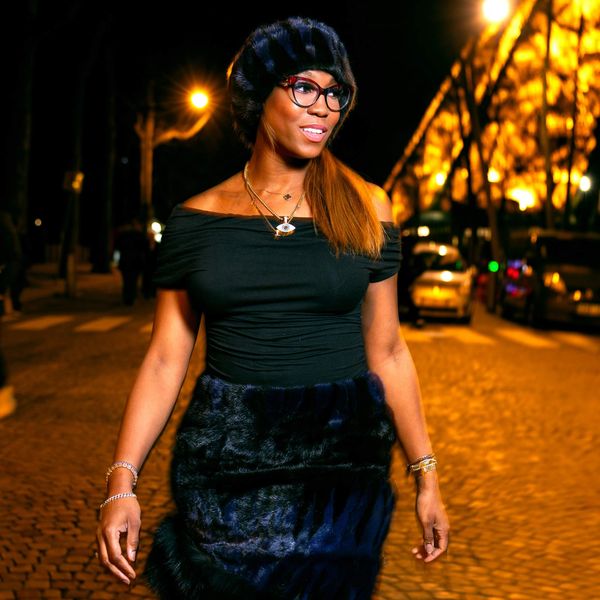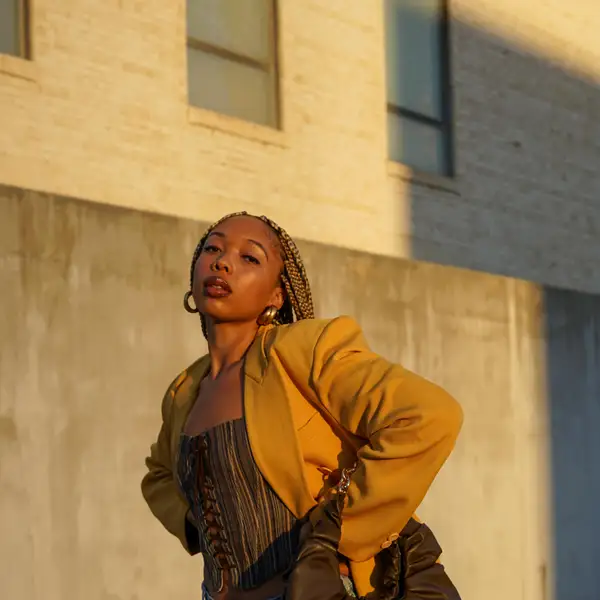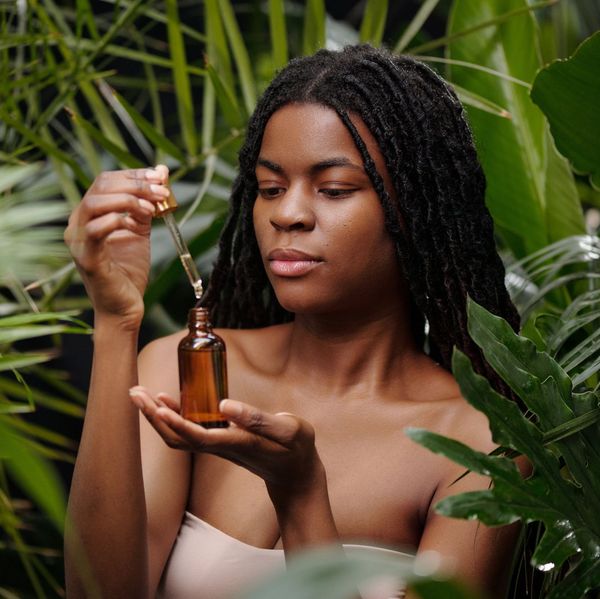Somebody cue Jahiem's "Age Ain't a Factor" music video, please. Angela Bassett. Cicely Tyson. Gabrielle Union. Adrienne Banfield-Jones (Jada Pinkett Smith's mama). Toni Braxton. Bianca Lawson. Nia Long. Sanaa Lathan. Cynthia Bailey. Karyn Parsons. Sade. Regina Hall. Kimberly Elise. Rozonda "Chili" Thomas. Jill Marie Jones. Mya. Alfre Woodard. Jenifer Lewis. Brandy. Iman. Whew! That's 20 you-definitely-don't-look-your-age women and y'all know good and well that I could go on and on. Indeed, there are a billion-and-one things that make being a Black woman beyond dope, inspiring and relevant. Today, we're going to touch on how well we seem to age.
So, what's up with my title for this article? Yes, there is solid scientific evidence which supports the fact that the high amounts of collagen and melanin (especially if you've got what is known as eumelanin which is what causes someone to have skin of a darker hue) in our skin, coupled with the fact that our bones are denser than a lot of other ethnicities and a lot of us didn't grow up wearing a ton of cosmetics, has resulted in many of us constantly looking 10-20 years longer than we actually are. Still, there are two things to always keep in mind. One, chronological aging is something that none of us can avoid (which is why some people can look 40 for 15 years and then look significantly older all of a sudden). Two, if you don't take care of your skin (and hair and teeth), you can start to age, rapidly and significantly so, no matter how amazing your gene pool is or how much melanin you've got.
That's why I said that "Black can crack" and I stand by that. Many health professionals do as well. What this piece sets out to do is to provide a few tips on how to not take what God (and your parents) gave you for granted so that you can keep looking, as my mother—who also qualifies for the "Wow, you look at least 15 years younger" line up—would put it, not younger than your age so much as representing what your age should be out here lookin' like.
Exfoliate
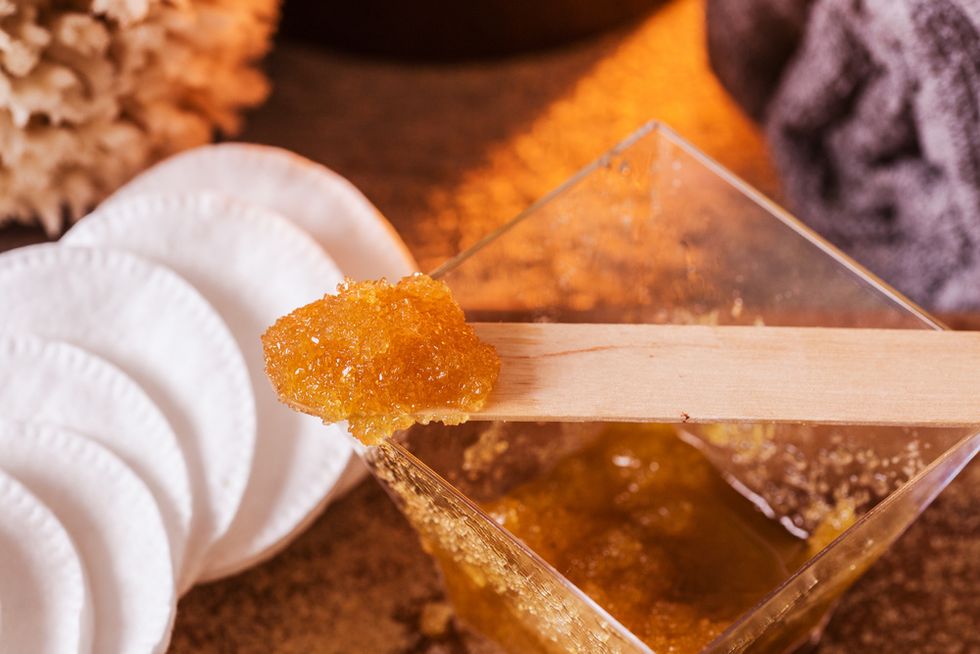
If there are two things that a lot of us struggle with when it comes to our skin, especially as we get older, it would have to be discoloration and dryness. Something that can make this less of an issue is to exfoliate (2-3 times a week unless you have sensitive skin; if that's the case, only do it once a week). Exfoliating is what helps to remove dead skin cells, clear clogged pores and reveal healthy skin. There are plenty of exfoliants on the market that you can buy, but something that I'm a fan of is old-fashioned DIY brown sugar and honey skin scrub. All you need to do is combine ½ cup of brown sugar (it's a humectant that gently exfoliates) with ¼ cup of coconut oil (it's got antibacterial properties), a teaspoon of grapeseed oil (it's loaded with antioxidants) and 2 tablespoons of honey (it's a humectant). Apply this mixture to clean damp skin and you'll notice immediate results after the first use.
Use Sunscreen
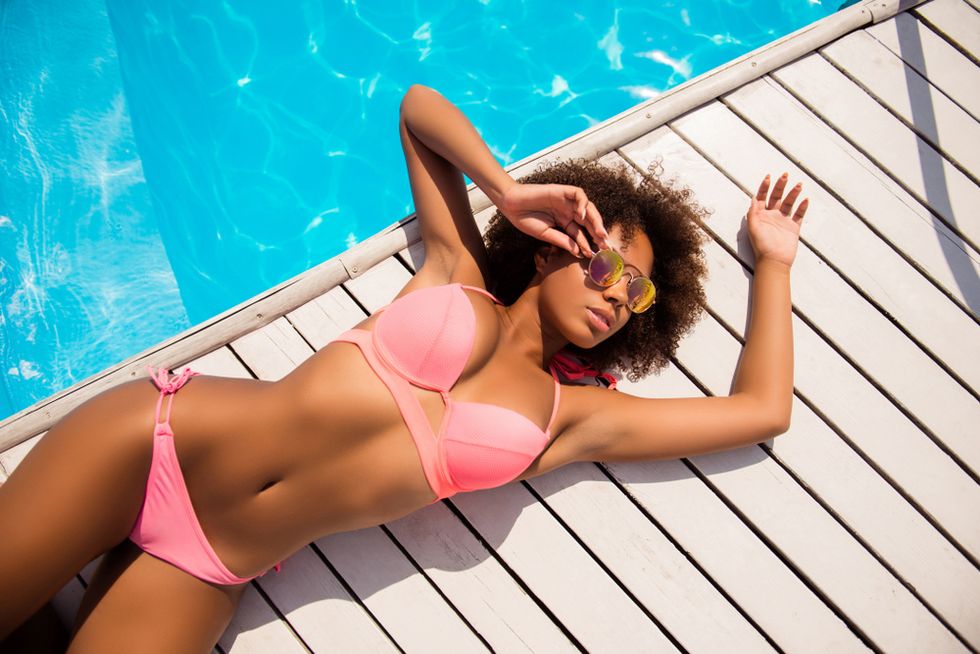
If you've always made it a habit of going out without sunscreen because you believe you don't need it, it's time to invest in something like Black Girl Sunscreen SPF 30.
While it's true that many of us grew up with the myth that darker skin doesn't require protection from the sun (not to mention the fact that many dermatologists were not trained on how to properly treat our skin), the reality is we can get sunburned and—this is a greater point—we are four times more likely than white people to be diagnosed with melanoma once it's in its fourth stage (which is very serious).
Also, since overexposure to UV rays can also result in fine lines and wrinkles over time, it's definitely in your best interest to apply sunscreen onto your face as well as your body. Not some of the time; daily.
Eat Food with Collagen in It
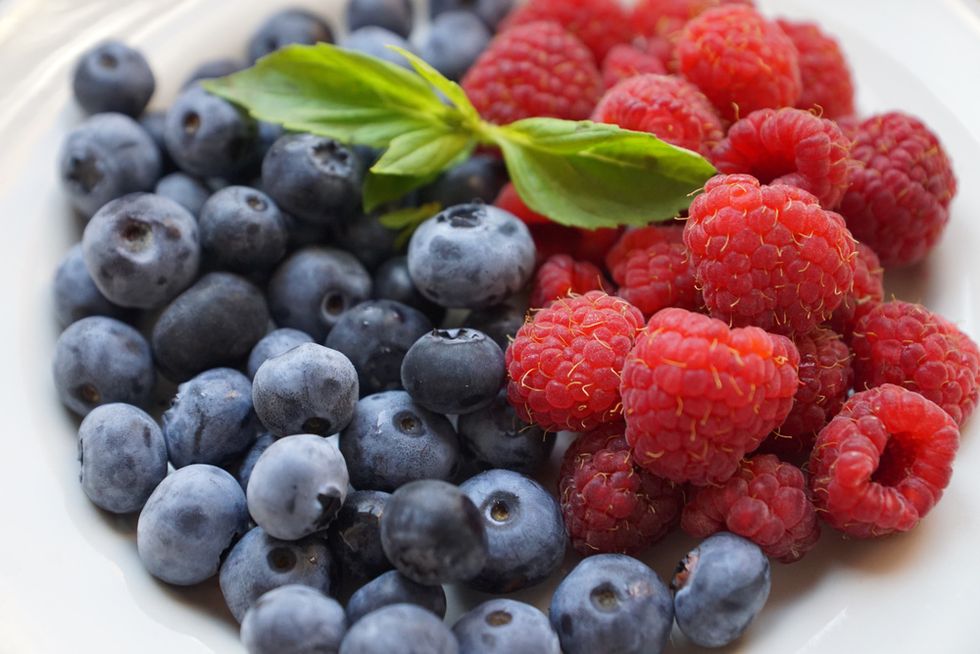
If your skin isn't looking as "tight" as you would like it to (or as it used to appear), it's probably because your system isn't producing as much collagen as it once did. Collagen is a natural protein that strengthens your skin and builds its natural elasticity. The good news is there are collagen supplements that can counteract this issue. You can also eat foods that are high in collagen. Some of those include berries, tomatoes, bone broth, dark leafy greens, fish, citrus fruits and carrots.
Eat Melanin-Producing Foods Too
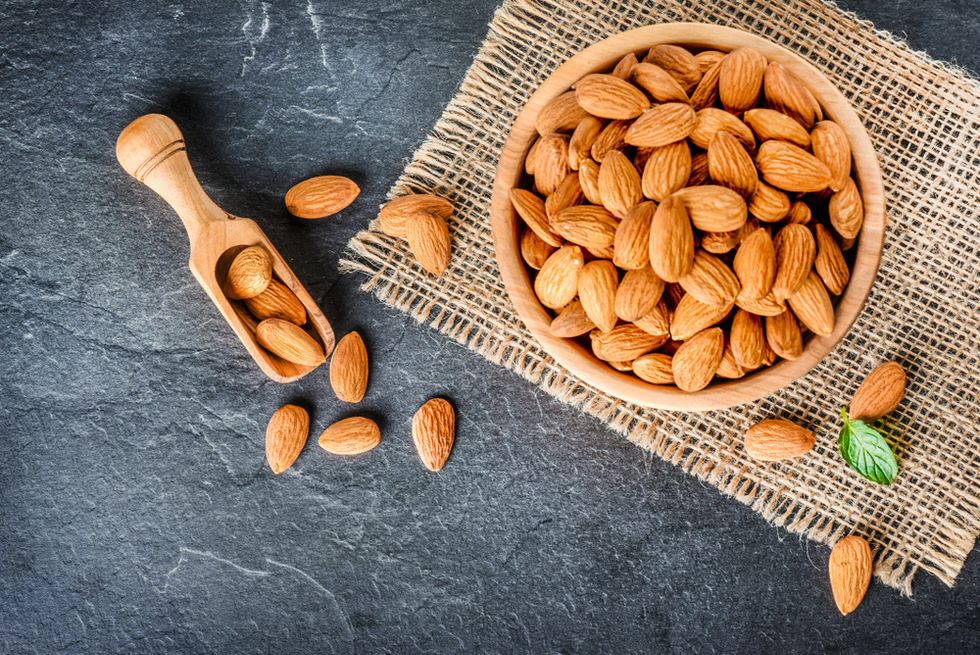
Since melanin is what keeps us looking so good, it makes perfect sense that we should consume foods that help to maintain our melanin levels, right? Come to think of it, the reason why our hair turns grey is because our bodies stop producing the amount of melanin that it once did as we get older. That's why it's also a good idea to intentionally eat foods that can produce melanin in our bodies. I actually wrote an article entitled, "Some Foods Literally Enhance Our Melanin (Who Knew?)" that will help you out with that.
Ease Off of the Perfume and Statement Necklaces
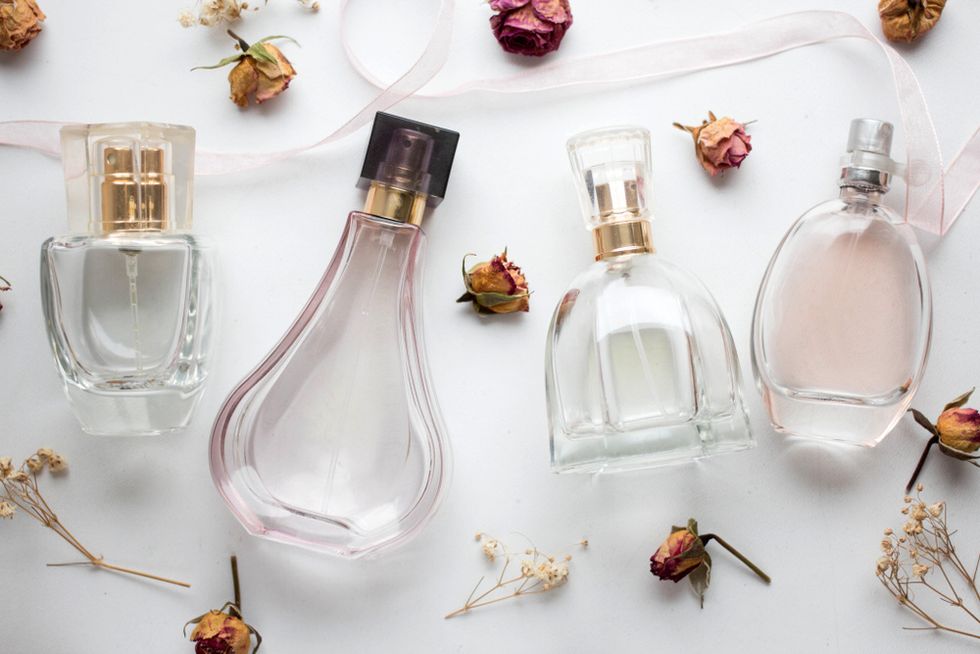
Man. There were about a dozen people who immediately came to my mind when I read up on this particular point. I kinda hate to say it but…you know how they say that if you cut open a tree and count its rings that you'll be able to tell how old it is? A lot of us may look great in the face but our neck still "tells on us" because it's saggy and wrinkly. Two reasons why that could be the case is because of the perfume that we spray on it and/or the heavy jewelry that we wear around it. The reality is that perfume tends to have quite a bit of alcohol in it that can dry our skin out (so you might want to switch over to essential oils). As far as necklaces go, while you might want to wear chunky stuff on occasion, the key is not to do it all of the time; the weight can pull down on your skin which you definitely don't want if you desire to have a youthful-looking neck.
Take a Vitamin D Supplement

Here's something that might trip you out. The reason why a lot of Black people have a natural Vitamin D deficiency is because our melanin actually hinders the sun's ability to naturally create it in our system.
A lack of Vitamin D not only results in fatigue and bone, back and muscle pain, it can lead to premature hair loss and skin aging too. You can stay on top of this by taking a Vitamin D supplement and/or to eat foods that are high in it. Some of those include salmon, eggs, yogurt, cheese and fortified cereals.
Keep Your Teeth White
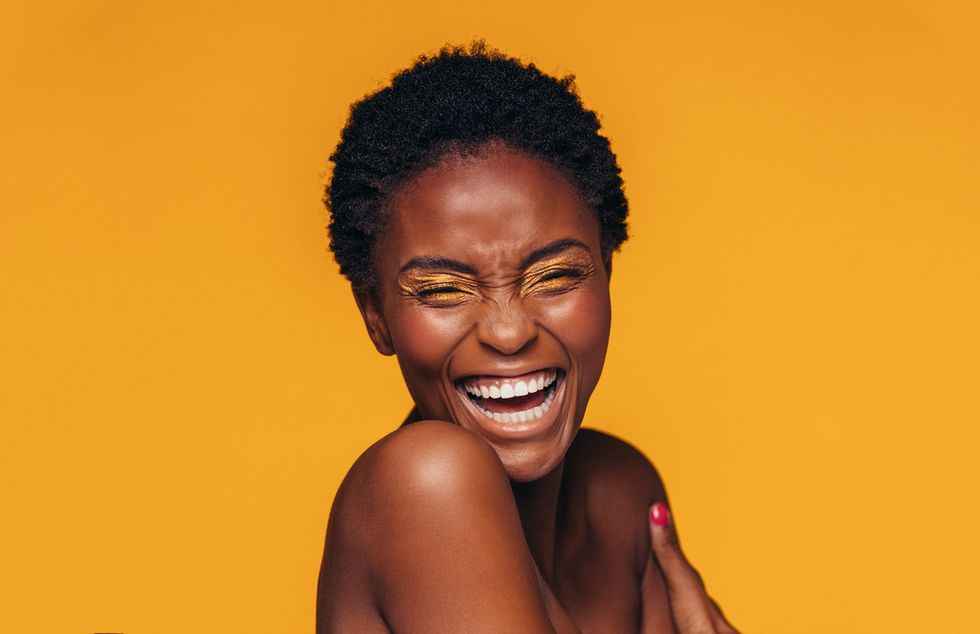
Something else that tends to happen over time is our natural enamel wears off and exposes the dentin that is underneath it. That can, in turn, cause our teeth to have a grey or yellowish tint to it which can also make us look older. Maintaining good oral health can help to keep this from happening. So can cutting back on acidic drinks (like soda and coffee), balancing how much fermented food you consume (it also has acid in it), and keeping your mouth thoroughly hydrated (that keeps bacteria at bay). Also, use a softer bristle toothbrush. Hard bristles can damage your teeth over time too.
Get Some Protein Treatments
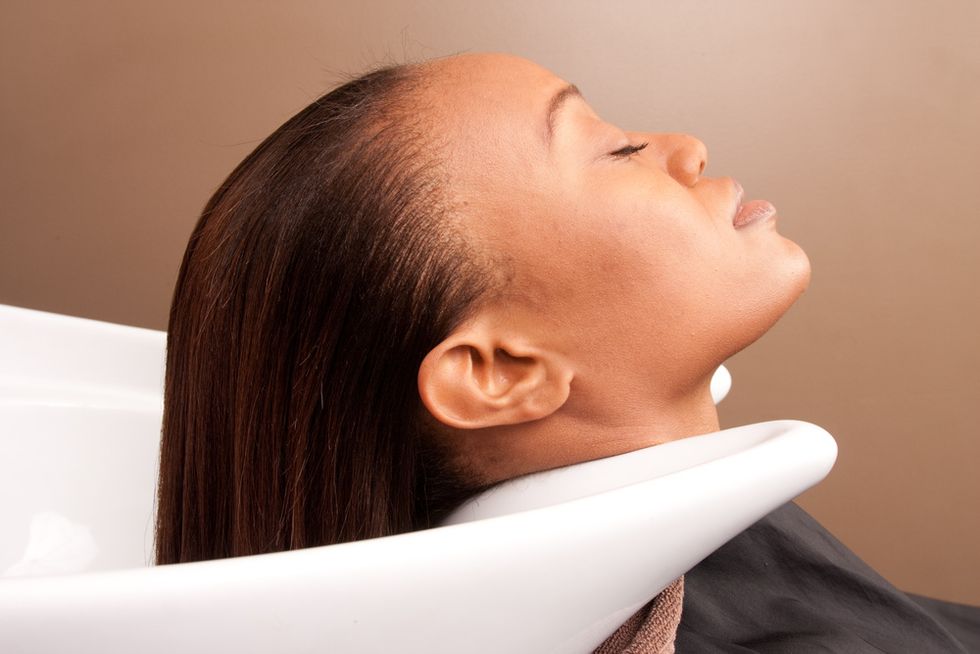
When you end up with grey hair, it has a lot to do with your gene pool. At the same time, being low in protein plays a significant role as well. Our hair is made up of the protein keratin, which is produced less and less, the older we become. That can result in our hair looking thinner and less healthy. That's why it's a good idea to give your hair protein treatments about every six weeks. Also, because nails are made up of keratin and they can become drier and more brittle over the years, make sure that you eat foods that are high in protein (yogurt, spirulina, oats, quinoa and poultry), and that you regularly apply a nail strengthener to your nails too.
Drink More Water
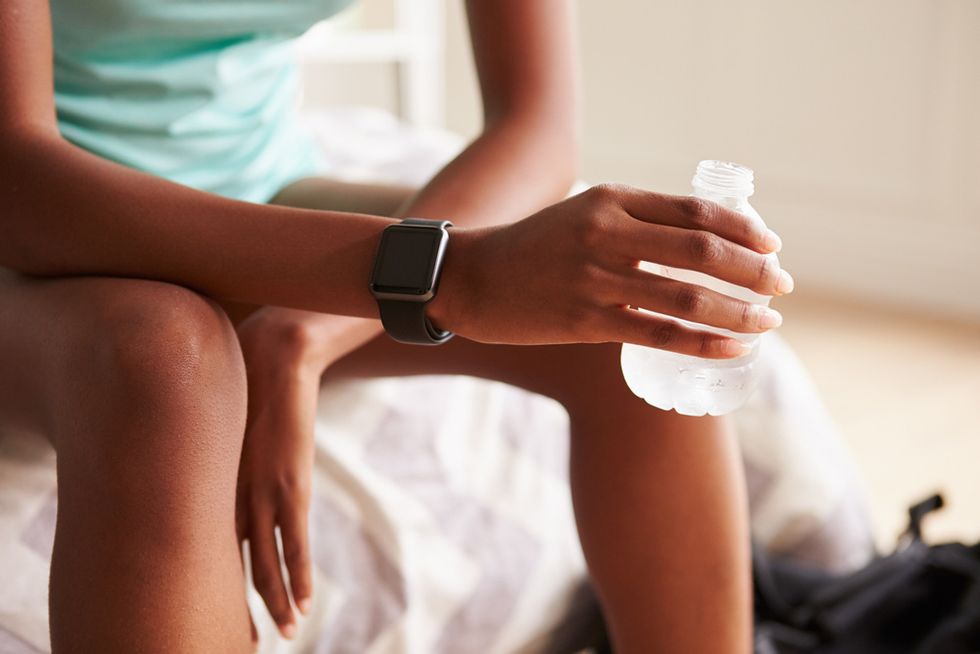
It would take another article entirely to cover all of the benefits that come with drinking water. As far as your skin goes—it removes toxins, hydrates you (so that you have less fine lines and wrinkles), reduces puffiness, speeds up the healing process, balances the sebum in your skin (which makes your pores appear smaller) and, it also makes your skin look fuller and plumper; this, in turn, causes you to look younger in the process.
Sleep on Your Back More Often
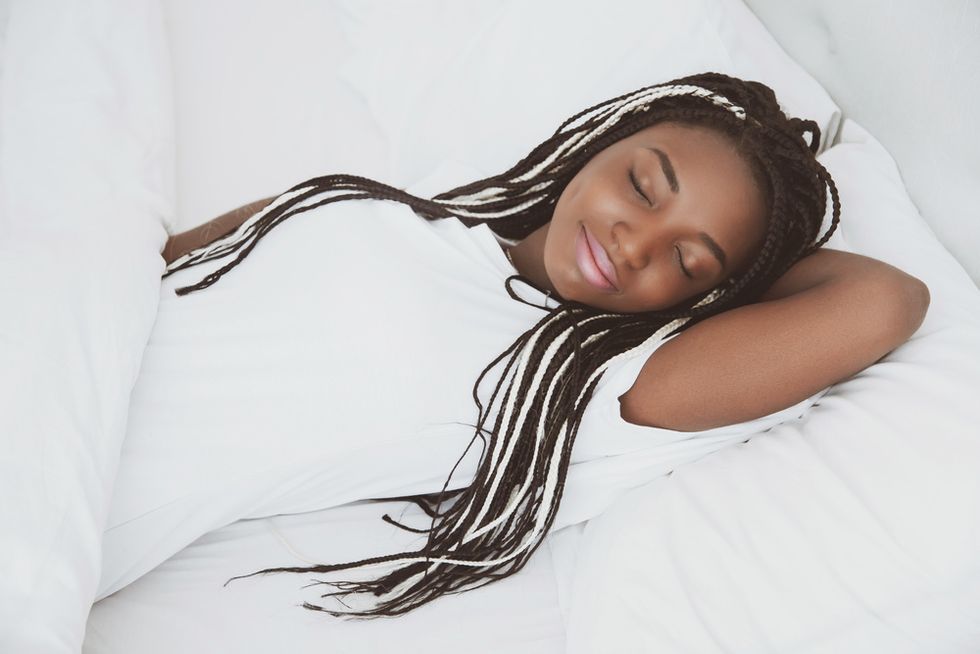
I've got to admit that this is something I need to work on. While I prefer to sleep on my side, doing that (and sleeping on your stomach) can also age you. How? Well, if you ever wake up and see lines on your face, don't just chalk that up to simply being a minor result of being on your sheets and pillowcases all night; it's actually a foreshadowing of where wrinkles can occur. That's because putting that kind of pressure on your face for hours on end can create creases and crinkles over time. That's why it really is your best bet to sleep on your back as much as you can. You lower the "risk" of fine lines, you allow the fluid in your face to properly drain and, you can keep the bacteria that's on your bedding from infecting your pores—and all of this can help you to "keep your Black from cracking" for many years to come.
Want more stories like this? Sign up for our newsletter here and check out the related reads below:
10 All-Natural Ways To Strengthen Your Teeth & Whiten Your Smile
These Foods Will Give Your Skin & Hair The Moisture They Crave
Chilli And Mýa Share Their Secrets For Remaining Flawless And Fabulous
Featured image by Nappy
- All-Natural Ways To Make Pores Smaller - xoNecole: Women's Interest, Love, Wellness, Beauty ›
- Add These Drinks to Your Beauty Routine - xoNecole: Women's Interest, Love, Wellness, Beauty ›
- 12 Foods That Legitimately Reduce Signs Of Aging - xoNecole: Lifestyle, Culture, Love, Wellness ›
- The 10 Best Sunscreens For Dark Skin - xoNecole ›



